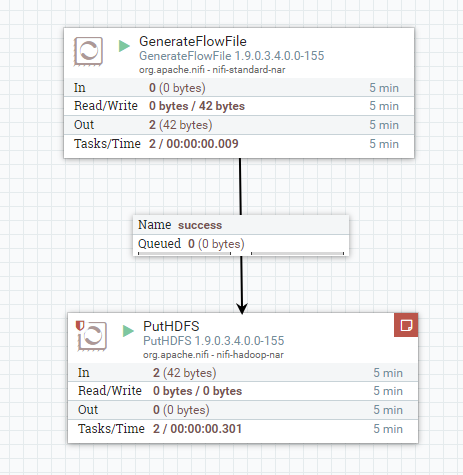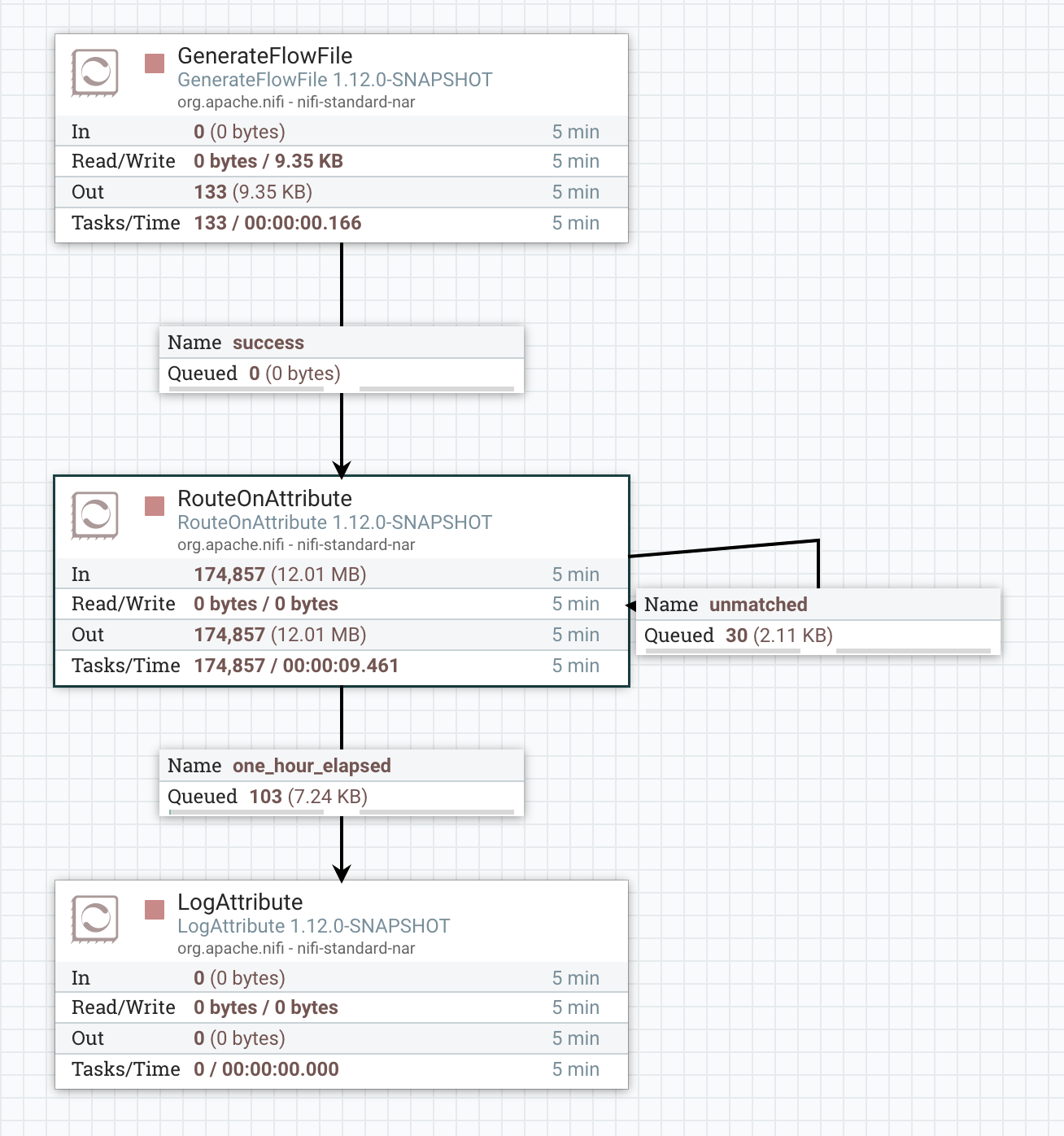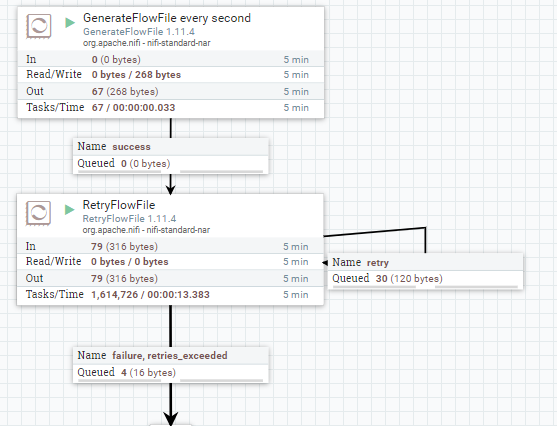You can use an ExecuteScript processor to run a sleep(60*60*1000) loop, but this would unnecessarily use system resources.
I would instead introduce a RouteOnAttribute processor which has an output relationship of one_hour_elapsed going to PutHDFS, and unmatched looped back to itself. The RouteOnAttribute processor should have Routing Strategy set to Route to Property Name and a dynamic property (click the + button on the top right of the Properties tab) named one_hour_elapsed. The Expression Language value should be ${now():toNumber():gt(${entryDate:toNumber():plus(3600000)})}.
This expression:
- Gets the current time and converts it to milliseconds since the epoch (
now():toNumber())
- Gets the
entryDate attribute of the flowfile (when it entered NiFi) and converts it to milliseconds and adds one hour (entryDate:toNumber():plus(3600000) [3600000 == 60*60*1000])
- Compares the two numbers (
a:gt(${b}))
If this is not actually the start of your flow, you can use an UpdateAttribute processor to insert an arbitrary timestamp at any point of your flow and calculate from there.
I would also recommend setting the Yield Duration and Run Schedule of the RouteOnAttribute processor to be substantially higher than usual, as you do not want this processor to run constantly as it will do no work. I'd suggest setting this to 1 or 5 minutes to start, as you are introducing a one hour delay already.
![Flow showing timing loop]()



